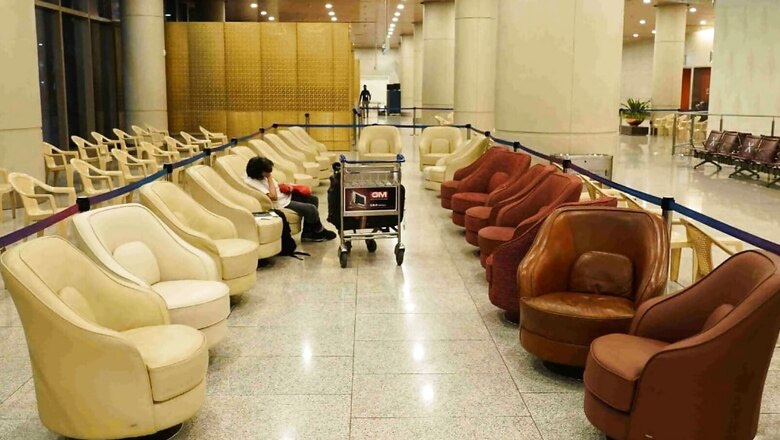
views
Amid growing concerns over the Omicron variant of the novel coronavirus even as India confirmed its third case, the Mumbai international airport has introduced several norms to screen international travellers for Covid-19.
If you are flying to Chhatrapati Shivaji Maharaj International Airport in Mumbai from abroad, here is what you can expect:
Inbound from ‘at risk’ countries
Passengers travelling to India from ‘at risk’ countries will be de-boarded on priority. These countries are European nations, including UK, as well as South Africa, Botswana, Zimbabwe, Brazil, China, Mauritius, New Zealand, Singapore, Hong Kong and Israel.
The Mumbai airport has set up dedicated corridors and counters for screening and verification for those flying in from these countries.
Passengers arriving from South Africa, Botswana and Zimbabwe or passengers who have visited any of these three countries in the last 15 days before arrival in Maharashtra, must undergo mandatory institutional quarantine for seven days after giving their RT-PCR test at the airport.
They shall also undergo a second RT-PCR test on the seventh day. If any test is found to be Covid positive, then such passengers will be moved to a hospital with Covid treatment facilities by the civic body or state authorities. If the test is found to be negative on the seventh day, passengers will have to undergo a further seven-day home quarantine.
Facilities at the airport
Mumbai international airport has set up 100 registration counters and 60 sampling booths, including 100 testing machines.
Passengers arriving from ‘at risk’ countries will have to undergo mandatory RT-PCR test on arrival, and are required to wait for their test results before taking a connecting flight or proceeding towards immigration. If the RT-PCR test is found to be positive, then such a passenger will be moved to a designated isolation facility.
Passengers can opt for any of the two tests — rapid PCR test for Rs 3,900 as against Rs 4,500 earlier with results in 90 minutes, or normal RT-PCR test for Rs 600 with results in four to six hours.
There is a separate waiting area with free WiFi for those coming in from ‘at risk’ countries. Airport authorities are conducting stringent sanitisation at regular intervals and deep cleaning areas where testing and seating arrangements have been at the arrivals sections.
On December 3, a total of 6,732 international passengers from at-risk and other countries successfully completed their arrivals procedures. A total of 969 international passengers underwent RT-PCR test, of which 214 passengers took the standard RT-PCR test and 755 passengers opted for rapid PCR test.
Ravi, an international traveller from Singapore, said, “The arrangement at the airport was fantastic.”
Another passenger from Ireland said, “It took me 10 minutes to go through all the process and now I’m going to get my rapid test report in one hour; the services are good and I am happy.”
Travellers from countries excluding those designated as ‘at risk’ are allowed to leave the airport and shall self-monitor their health for 14 days after arrival. Children under the age of five are exempt from both pre- and post-arrival testing.
If found symptomatic for Covid-19 on arrival or during home quarantine period, however, they shall undergo testing and will be treated as per laid down protocols.
Two per cent of total flight passengers arriving from the countries, other than at-risk countries, are required to undergo RT-PCR test after arrival at random. Such travellers in each flight are identified by the concerned airlines (preferably from different countries). Such travellers are escorted to RT-PCR testing area on arrival.
Domestic passengers are required to be fully vaccinated with two doses of a Covid-19 vaccine or must carry a negative RT-PCR test carried out within 72 hours of boarding.
EXCLUSIVE | It’s a Wake Up Call. Omicron Already Here, It’s Not Coming From Abroad: Former CSIR Institute Chief
Read all the Latest India News here




















Comments
0 comment